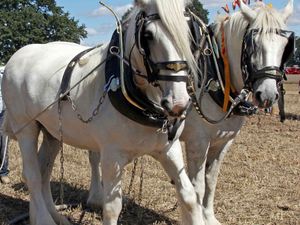What happens to your farm when you die
Let’s be honest - farmers aren't big on retirement plans. As someone who works with farming families every day, I know most are in it for the long haul, even with the next generation waiting in the wings.
Watch more of our videos on ShotsTV.com
and on Freeview 262 or Freely 565
But when it comes to what happens to your farm after you're gone, things get complicated quickly - especially with recent changes to inheritance tax laws. Let's cut to the chase - succession planning is essential for your farm's future.
With or without a will
If you've got a will in place, your farm will be distributed according to your wishes, with executors applying for probate to sort everything out, hopefully in a tax efficient way if your will is structured carefully. But without one? Those statutory intestacy rules kick in, which rarely match what you would have wanted. Before you know it, the farm you've poured your life into could be broken up or sold off entirely.
The process takes time too - at least 6-12 months for straightforward cases, and often much longer for complex farming estates.
Tax talk
The inheritance tax landscape is shifting beneath our feet. Agricultural Property Relief can currently provide up to 100% relief on agricultural property, and Business Property Relief may also apply to your farming business. But beware - the Autumn Budget 2024 has looked to cap these reliefs at £1 million on combined agricultural and business property from April 2026, with reduced relief then available on any additional value at 50%, effectively meaning that inheritance tax will be paid at 20% (half the standard 40%) on assets above the £1 million threshold.
There's some breathing room with the standard nil rate band of £325,000 per person, and potentially a residence nil rate band of £175,000, but careful planning is needed to make sure any potential allowances can be maximised in your Estate.
Beyond the paperwork
It's not just legal hoops to jump through. When a farm owner dies, the family must deal with grief while facing practical challenges: cash flow problems if inheritance tax is due, business interruption during probate, and sadly, family disputes when multiple heirs are involved.
Looking ahead
If there's one piece of advice I can offer, it's to get that succession plan sorted sooner rather than later. The changes we're seeing make specialist legal advice absolutely essential. This is about protecting what you've built for generations to come.
Samantha Roberts, an associate specialising in agricultural and rural services in the wills, probate and lifetime planning team at FBC Manby Bowdler and can be contacted via email on samantha.roberts@fbcmb.co.uk or call 01743 284141





